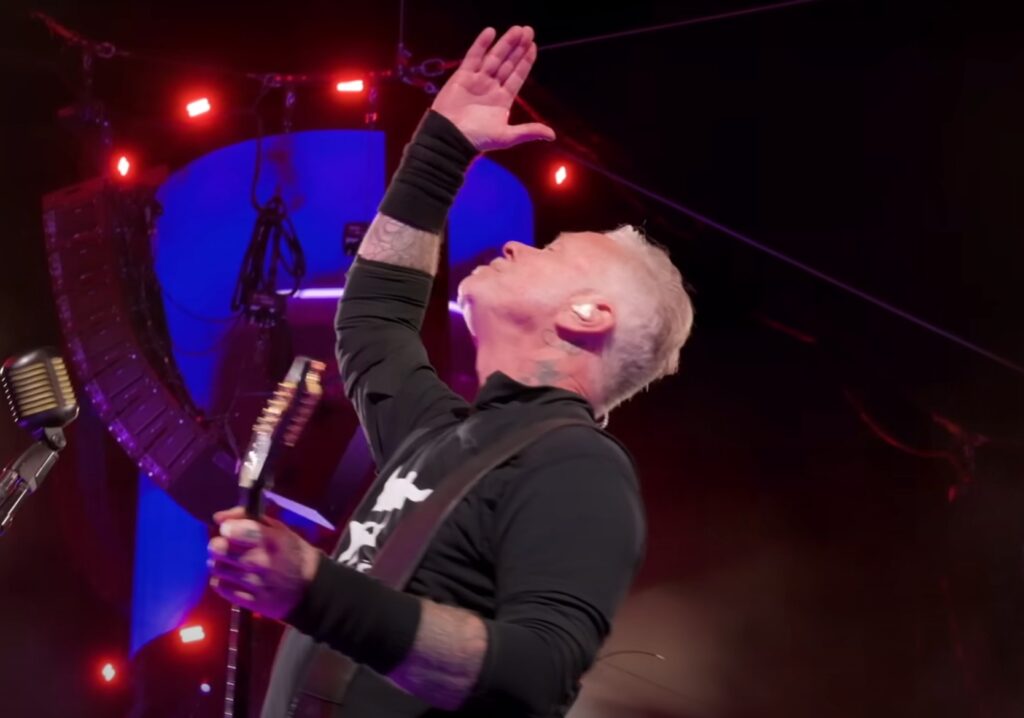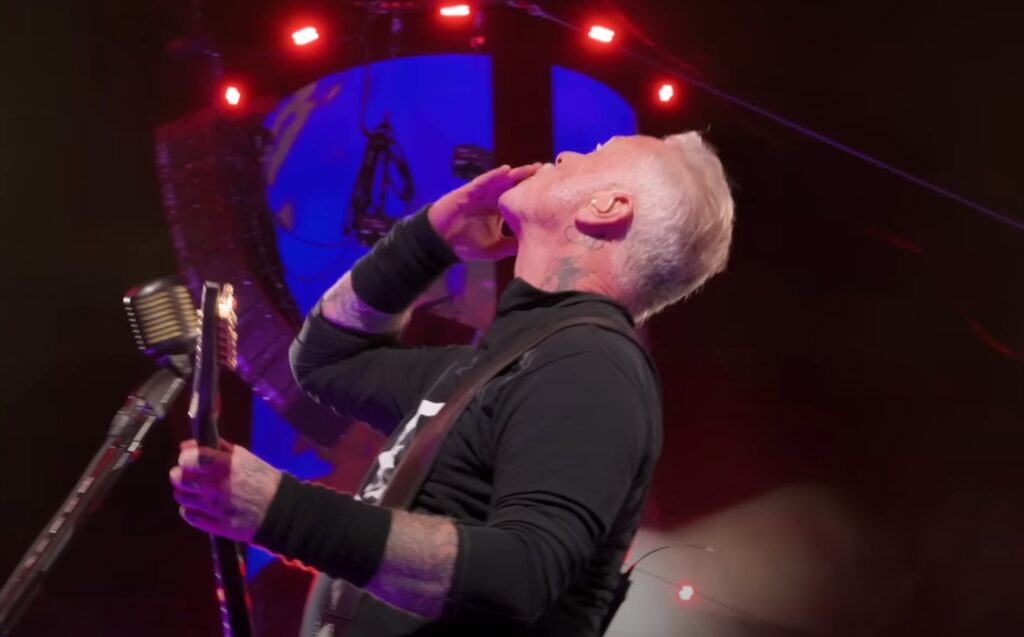Metallica Honors Cliff Burton with Emotional “Orion” Tribute in Philadelphia
On May 23, 2025, an emotional moment unfolded at Lincoln Financial Field in Philadelphia as Metallica performed one of the greatest instrumentals in heavy metal history: “Orion.” From the first haunting bass lines to the thunderous harmonies that followed, the band delivered a performance that transcended music and became a tribute to legacy. This was no ordinary concert segment—it was a spiritual encounter with the soul of the band’s past.
The atmosphere shifted the moment the first note rang out. Cliff Burton, Metallica’s late bassist and the creative mind behind much of “Orion,” felt palpably present in the arena. Fans, young and old, stood in silence as the instrumental masterpiece unfolded, their faces lit by stage lights and memories. It wasn’t just a song—it was a resurrection.
As James Hetfield, Kirk Hammett, Lars Ulrich, and Robert Trujillo played in perfect sync, it became clear this wasn’t about showmanship. It was about reverence. Every riff, every drum beat, every bass slide served a purpose: to honor Cliff Burton’s unparalleled contribution to Metallica and to music itself. The crowd felt it in their bones.
“Orion” has always stood apart for its complexity and emotion. Cliff Burton didn’t just play bass—he composed, orchestrated, and innovated. The track showcases his classical influences and experimental edge. From the layered bridge sections to the soulful bass harmonies, it remains one of the most intricate and emotionally powerful compositions in the band’s catalog.
During the bridge, a quiet moment fell over the crowd. Hetfield took a step back from the mic, gazed out over the sea of raised hands, and simply said, “We miss you, Cliff.” The entire stadium fell into a moment of shared silence, followed by a wave of cheers and applause. It was a communal acknowledgment of the genius who left too soon.
Social media exploded within minutes. Clips of the tribute, fans in tears, and the simple phrase “We miss you, Cliff” trended across platforms. Young fans who had never seen Cliff live felt like they had. Older fans, who remembered him in action, were brought back in time. The tribute became a viral symbol of how deep Metallica’s roots still run.
What made the moment more powerful was its authenticity. This wasn’t rehearsed sentimentality or a forced throwback. It was a natural, necessary pause in a high-octane show—a reminder that music lives longer than the men who make it. Burton’s legacy, especially through “Orion,” remains woven into Metallica’s identity.

The performance also highlighted Burton’s lasting influence on the band’s evolution. Though he passed in 1986, his creative DNA is still present in their live arrangements, their songwriting sensibilities, and even the tattoo of “Orion’s” notes on Hetfield’s arm. The music may evolve, but the foundation remains Cliff’s.
Philadelphia’s tribute echoed past homages, particularly the one at Burton’s funeral in 1986, where “Orion” was played in mourning. But this time, it wasn’t just a goodbye—it was a celebration. A reclaiming of Cliff’s spirit in front of tens of thousands of fans who understood exactly what he meant to the band.

The rest of the concert followed with emotional intensity. “Master of Puppets,” “Fade to Black,” and “Nothing Else Matters” felt heavier, more charged. Every note that night seemed to ripple with the memory of Cliff’s bass—his fingerprints on a sound that refuses to die.
Fans left the stadium dazed, many saying it was the most profound show they’d ever seen. For them, “Orion” was not just performed—it was felt. Cliff Burton may be gone, but May 23, 2025, proved that his genius still moves the world.





